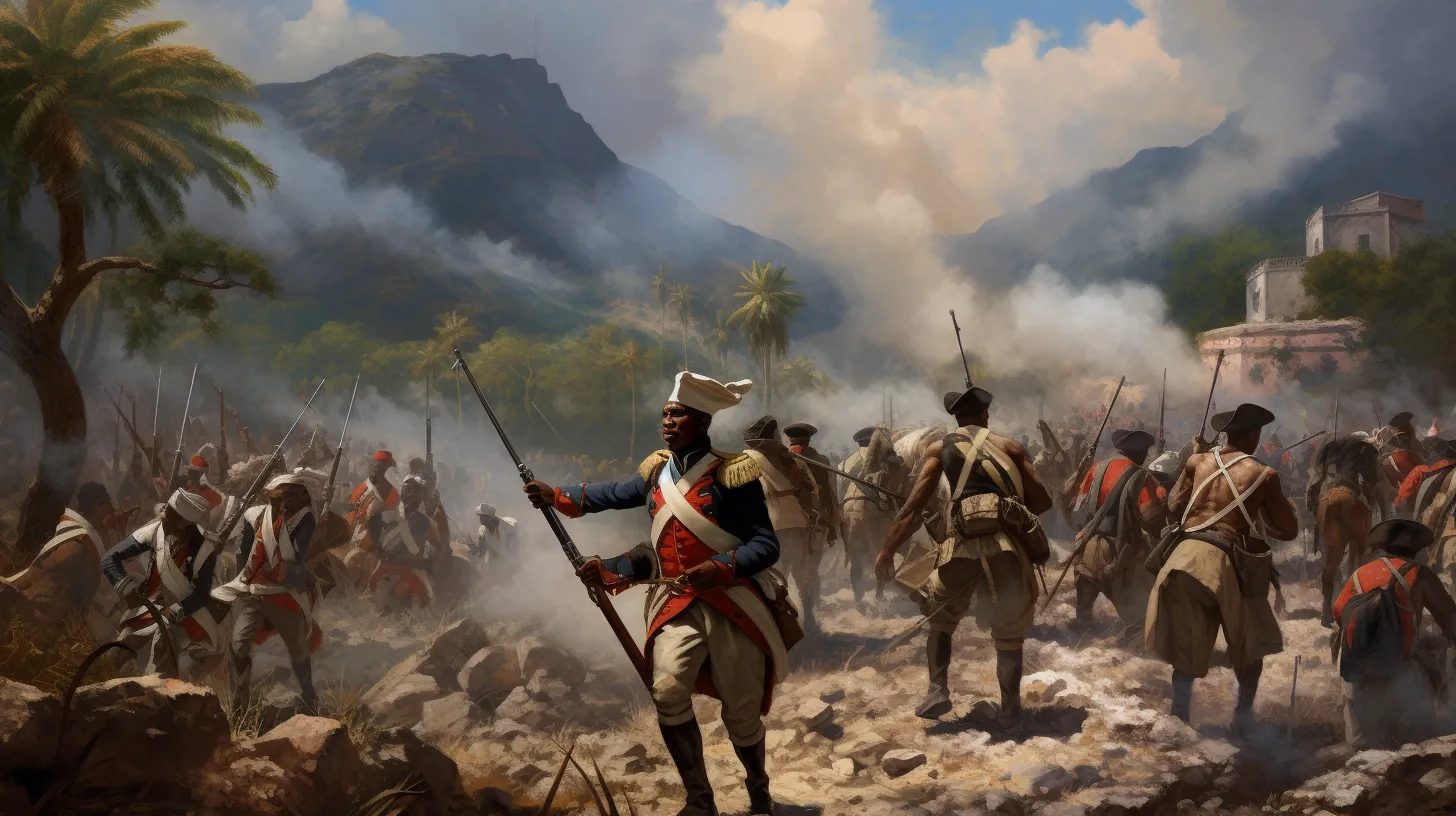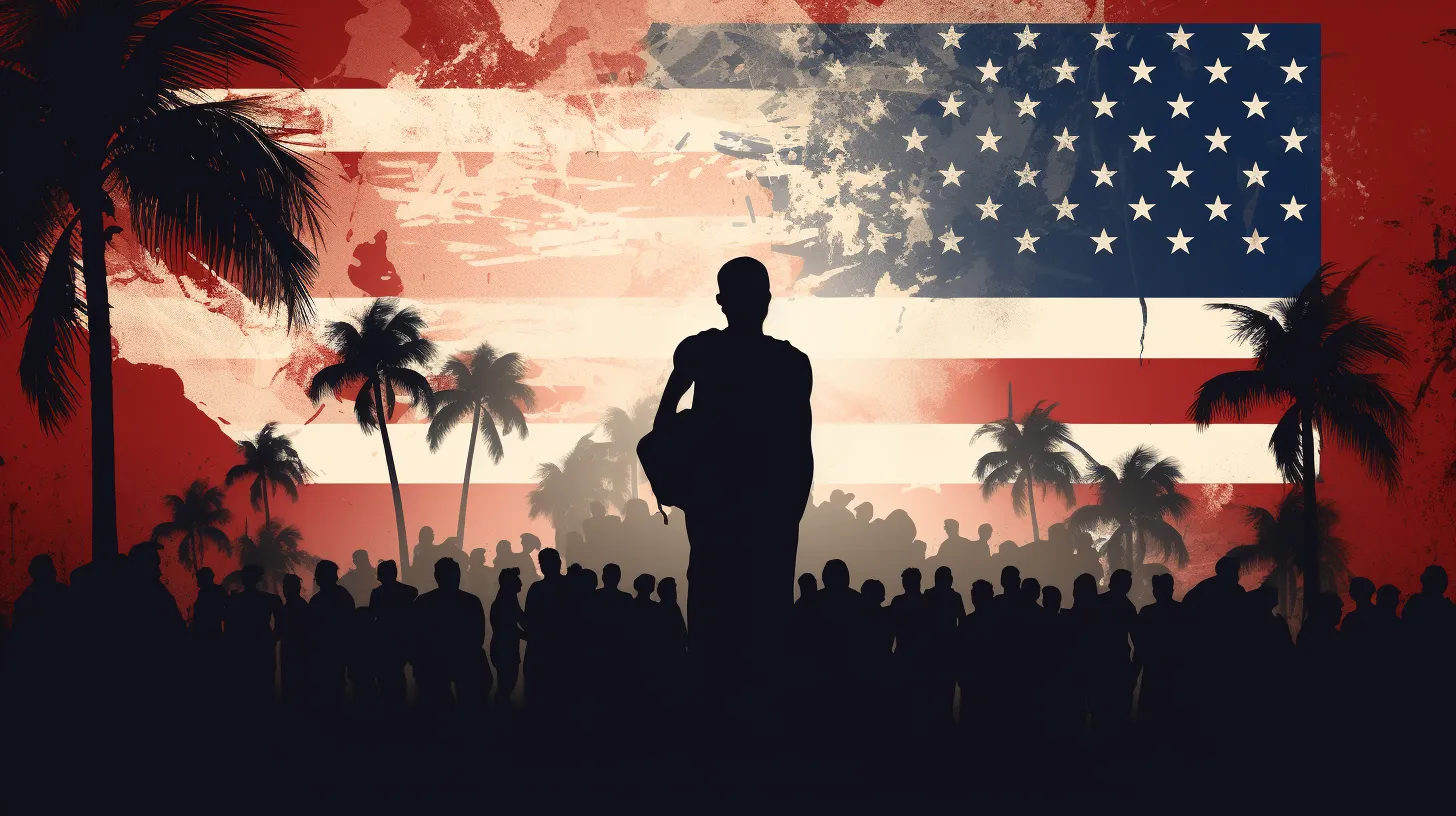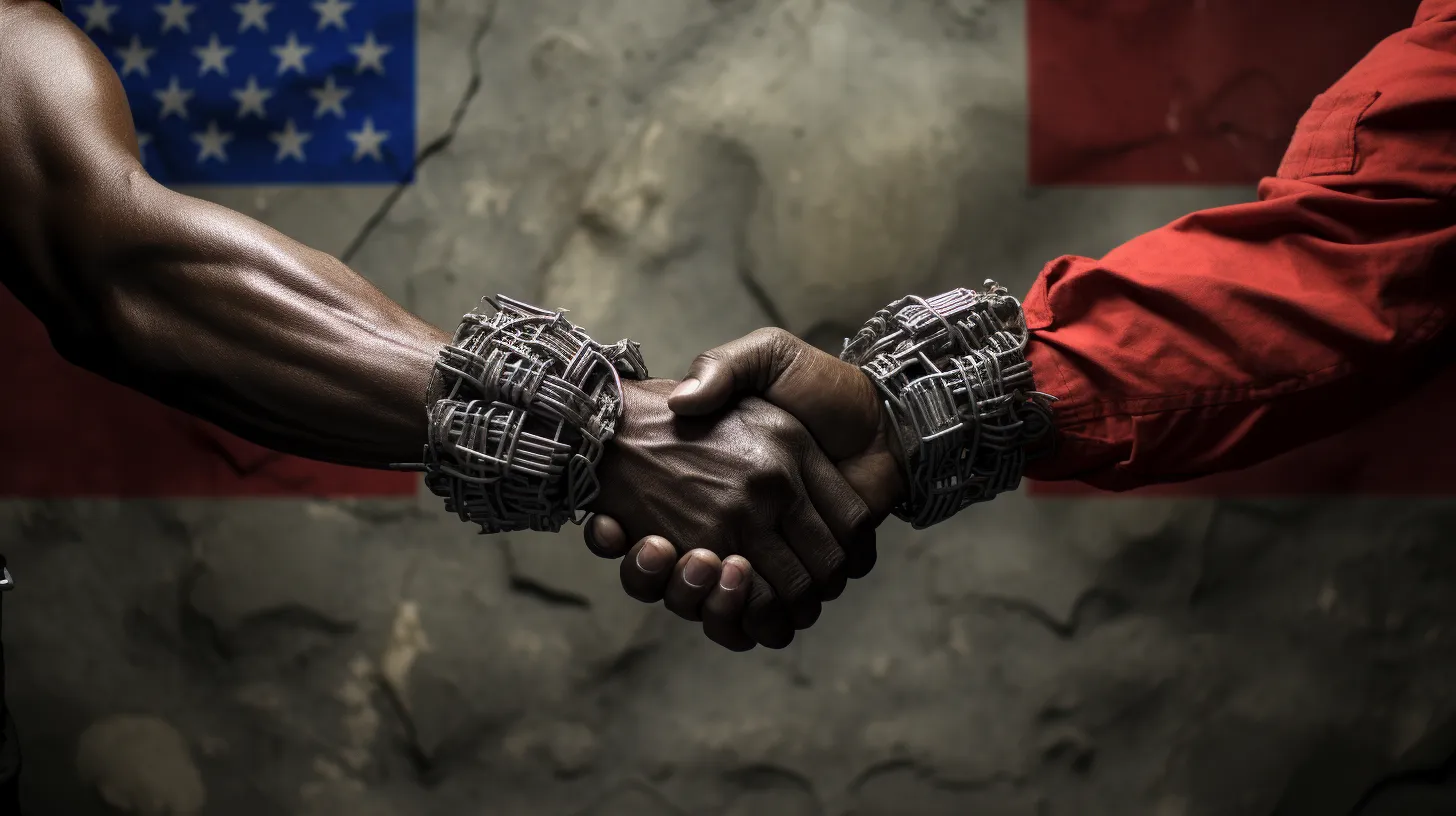During the early years of the United States, Haiti played a crucial role in safeguarding the nation’s independence from European domination. The island’s bold revolt, led by Toussaint L’Ouverture, directly impacted American history by thwarting European ambitions and indirectly contributing to the protection of American independence.
This significant historical event highlights Haiti’s profound influence on the United States, shaping trade, foreign policy, perceptions of slavery, and national security.
The story of how Haiti saved the United States stands as a testament to the resilience and power of the oppressed, inspiring future generations in the ongoing fight against oppression.
Haiti’s Support During the American Revolutionary War

Haiti’s support during the American Revolutionary War disrupted European plans for domination in the Americas, indirectly helping to protect American independence.
The enslaved people of Haiti, under the leadership of Toussaint L’Ouverture, revolted against French control, diverting the attention and resources of the European powers away from the United States.
This support was a pivotal factor in saving the American Revolution from potential European intervention.
By successfully resisting French authority, Haiti not only secured its own independence but also prevented France from using the island as a strategic base to launch attacks on the United States.
This bold act of defiance showcased the power of enslaved individuals to fight for their freedom, inspiring others and contributing significantly to the protection of American sovereignty.
Haiti’s pivotal role in disrupting European plans and saving the American Revolution underscores the interconnectedness of global historical events.
The Impact of Haiti’s Independence on United States Trade

Following the Haitian Revolution, the United States found itself in a unique position due to the impact of Haiti’s independence on its trade relationships.
The US imposed an embargo on trade with Haiti after its independence, fearing repercussions from the evicted French and Southern slaveholders.
However, the Louisiana Purchase was a direct result of the Haitian Revolution, as Napoleon saw no further use for Louisiana and the US acquired the entire territory. This acquisition significantly expanded US territory and trade opportunities.
Some anti-slavery advocates in northern cities believed that supporting the Haitian people was consistent with the principles of the American Revolution.
The rebellion in Haiti also posed a challenge to the European powers and the existing slavery system, influencing the United States’ trade policies and its stance on global abolition movements.
Haiti’s Role in Influencing United States Foreign Policy

The United States’ foreign policy was significantly influenced by Haiti’s revolutionary struggle for independence, shaping its approach to global affairs and abolition movements.
The revolt in Haiti saved the United States from potential European entanglements and also influenced President George Washington’s stance. The fear of European involvement in American affairs led to the provision of aid to the white government in Saint-Domingue.
Moreover, Thomas Jefferson’s recognition of the Haitian Revolution’s potential to incite rebellion against slavery in the US created unease among Southern slaveholders. The US embargo on trade with Haiti after its independence was driven by concerns about repercussions from the evicted French and Southern slaveholders.
The Haitian Revolution also inspired hope among enslaved black Americans, challenging the notion of white supremacy and colonial domination and impacting the United States’ foreign policy and abolition movements.
The Haitian Revolution’s Effect on United States’ Perception of Slavery

The Haitian Revolution significantly influenced the United States’ perception of slavery. The successful rebellion of African slaves in Haiti against their French colonizers sparked debates and fears within the United States. Thomas Jefferson recognized the potential implications of the Haitian Revolution, causing unease among Southern slaveholders. Some Northern anti-slavery advocates saw parallels between the Haitian Revolution and the American Revolution, aligning their support with the principles of freedom and equality.
The revolution also inspired hope among enslaved black Americans, igniting aspirations for their own liberty and equality. However, the brutal tactics used during the Haitian Revolution provoked fear among the Southern planter class, who adamantly opposed any association with Haiti. The revolution forced the United States to confront the realities and complexities of slavery, challenging its perception and triggering internal tensions.
Haiti’s Contribution to United States’ National Security

Haiti’s successful resistance during the Haitian Revolution directly bolstered United States’ national security by thwarting European plans for domination in the Americas. The defeat of the feared French soldiers in Haiti showed the vulnerability of French power, preventing France from having a jumping-off point to attack the U.S. and undermining the perception of French invincibility. This saved the United States from potential invasion plans and protected American independence.
Furthermore, the Haitian Revolution had a lasting impact on the abolitionist movement in the United States by inspiring hope among enslaved black Americans that they could achieve liberty and equality.
The economic ties between Haiti and New England also influenced France’s support for the American cause, further contributing to United States’ national security during the Washington and Jefferson administrations.



